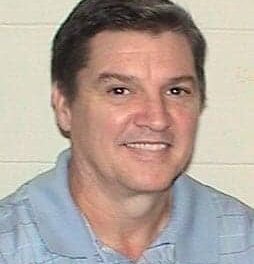By Dawn Griffin
America’s military veterans are heroes with a plethora of valuable skills. Upon returning to civilian life, these military members can turn their expertise and experience into a successful healthcare technology management (HTM) career. For example, TRIMEDX has more than 500 veterans who are thriving in this industry.
Military roles require problem-solving, decision-making, teamwork, and technical skills while working in fast-paced, high-pressure environments. These capabilities make veterans ideal candidates for a job in a healthcare setting, where they can continue to work in service to others.
Why Work in HTM?
Medical devices play a growing role in patient care. According to Fortune Business Insights, the global market is projected to expand from nearly $500 billion in 2022 to almost $720 billion by 2029.
As more devices come online, the need for technicians increases. The HTM industry currently faces a staffing crisis. Health systems will need 5,000 new technicians over the next three years. However, 22% of current engineering technicians are nearing retirement and fewer than 400 college graduates enter the workforce each year. This strong demand provides many opportunities and job security.
How Military Experience Translates
HTM roles foster a wide range of skills that promote the safe and effective use of healthcare technology, including biomedical equipment technicians, clinical engineers, and managers. These jobs require leadership, responsibility, initiative, problem-solving, and collaboration, all of which are also critical to a military experience. Additionally, many veterans received military training in healthcare systems and technology deployment, and this grows even more common as the armed forces increase technology use.
Veterans Who Transitioned to HTM
Kelly Langley, CBET, demonstrates the successful transition from the military to HTM. He is an imaging engineer at SSM Health Saint Louis University Hospital while also working as a Master Sergeant in the U.S. Air Force Reserves. Between active duty and reserves, Langley has served his country for more than 12 years.
During that time, he worked in electronic navigation and electronic surveillance, where he honed several talents, including the ability to work under pressure; organization and time management skills; teamwork and leadership aptitude; and the flexibility to adapt to changing situations. These all prepared him for his current position.
“I made so many mistakes [in my military service], and some days were longer than others,” he says of lessons learned. “Everyone else counted on me to get it right so they could eat. I learned that it didn’t get easier—I had to get better. So I did. I try to use this same approach to servicing medical equipment. The work doesn’t get easier. I need to get better. So many people—the clinicians, the patients, and my peers—depend on me to get it right.”
Another excellent example is Shawn Molloy, who works as a system director at the University of Chicago Medical Center after serving 12 years in the U.S. Army. While in the Army he performed a variety of roles, from biomedical repair and armor to supply sergeant and recruiter.
He received specialty training, graduating from medical equipment repair school at Sheppard Air Force Base. He credits the hands-on training and experience he gained in the service with improving his technical abilities and overall performance capabilities. His time inspired an enthusiasm for learning and a dedication to helping others.
“It also began my journey and love of being a leader and living my life in service to my subordinates and people,” says Molloy. “As I learned logistical skills as a supply sergeant and sales and social skills as a recruiter, I became a lifetime study of self-improvement and development, which drove me to my degree in healthcare administration to fully understand the systems I support and serve.”
Connecting with Military Veterans Through the DoD
The DoD SkillBridge program sponsors veterans in internship and pre-apprenticeship opportunities in a variety of industries, enabling them to explore different careers and providing an excellent pathway into HTM. Veterans receive formal training and extensive on-the-job experience. TRIMEDX is a SkillBridge partner and has received immense contributions to both workforce expertise and culture from the skilled veterans involved in the program.
Understandably, the transition from military to civilian life can be challenging. HTM is an excellent opportunity for veterans to use and expand their skills and enter a rewarding career. The industry is in high need of these talented individuals and is fortunate to have them on our team. In addition to job security, veterans can continue positively impacting their country.
Dawn Griffin is chief human resources and diversity officer at TRIMEDX. Questions and comments can be directed to [email protected].





